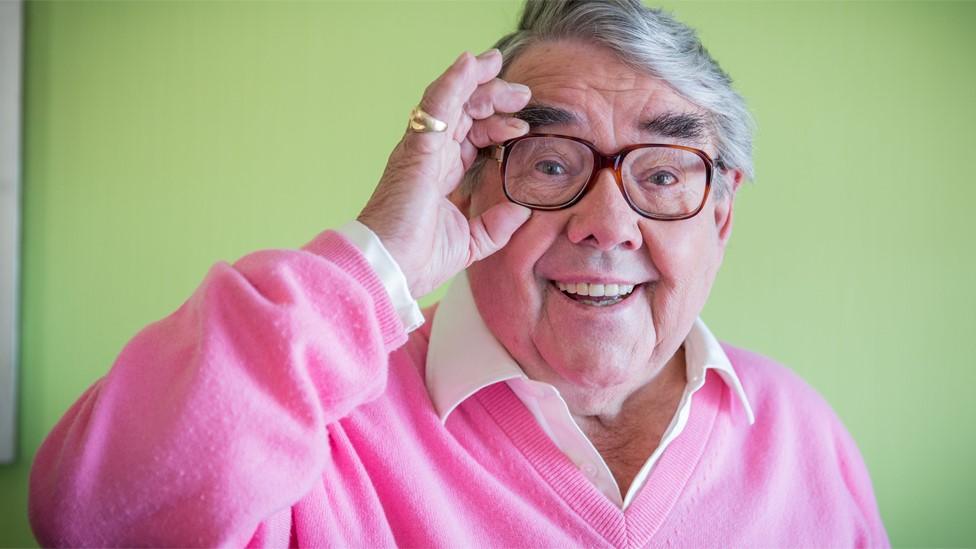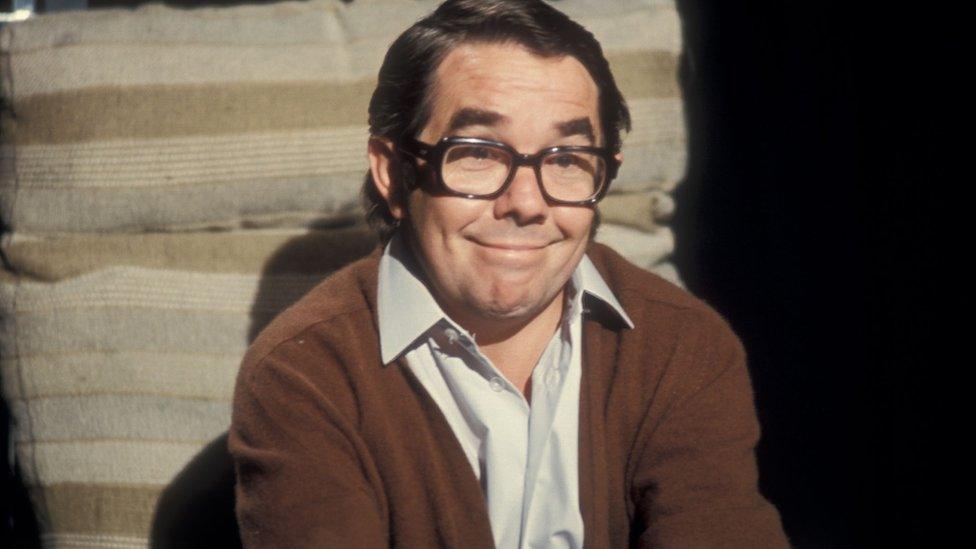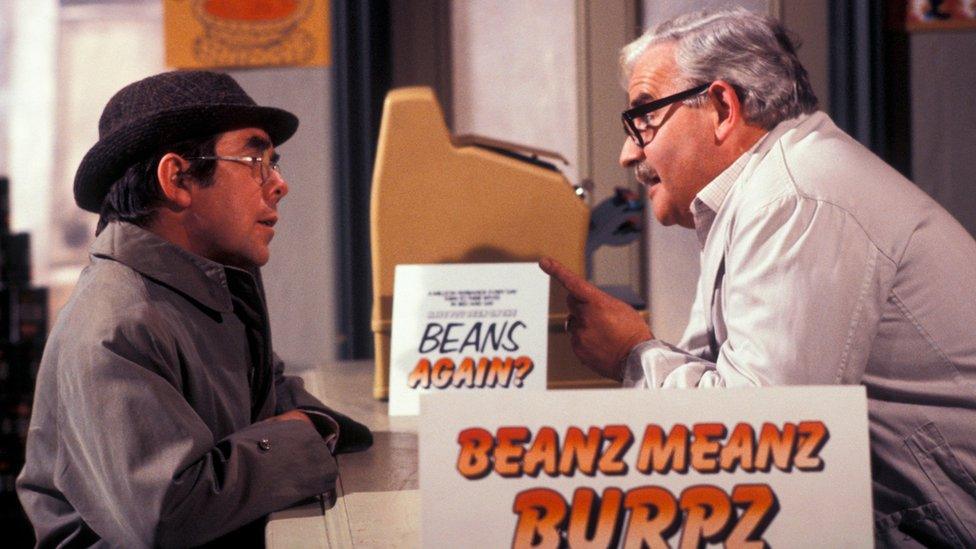Ronnie Corbett: The man behind the glasses
- Published

It was one of the West End's great disasters. Lionel Bart's Robin Hood musical Twang closed after just 43 performances but it was a stroke of good luck for a young Ronnie Corbett.
Over cucumber sandwiches at The Ritz with David Frost he had been offered a starring role in his new satirical TV programme, The Frost Report.
Suddenly freed from his duties as Will Scarlett, it was Corbett's big break in TV and paired him up with another performer, Ronnie Barker.
And why had Frost chosen Corbett? He had seen him in a show in a London nightclub with Danny La Rue.
There, in one story, is one of the main reasons Ronnie Corbett was such a popular performer - acting, revue, the 1960s satire boom, music hall - he brought it all together at the right time and the right place in one five-foot-one performer.
The Two Ronnies survived on the BBC because it had a breadth of comedy that gave it a startling breadth of appeal. Those '60s connections also helped - a number of those cocktail party sketches were written by Terry Jones and Michael Palin. The show's place at the heart of the Saturday night schedule meant it attracted the best writers.

There's also another factor - I once met Ronnie Corbett in a lift in BBC Television Centre. He was a bit lost (something that happened to everyone at one time or another) and we went up and down more than once trying to work out where he had just come from.
Meeting a childhood hero in a lift is always going to be a bit surreal, but what struck me was that he was entirely like the person I had seen on the television - he was good natured, self-deprecating and great company.
Watching him in public you noticed how he seemed to arrive with a little aura of good cheer. Perhaps the height helped, but he didn't have to say much to lighten the mood and that ability to be charming and affable was perhaps a key reason why his comic partnership lasted so long.
In 16 years of The Two Ronnies, Corbett could only remember one argument. Given that Ronnie Barker was a man of high standards and strong views that is an extraordinary achievement as the history of double acts is peppered with stories of partnerships that are less than friendly off-stage.

It might have been different if Corbett had been fighting to get his material on the show, but they avoided that bear trap. Barker contributed his sketches under the pseudonym of Gerald Wiley to ensure it was used on merit - indeed Corbett once set about trying to find Wiley because he wanted to use one of his sketches in his stage show.
Even the famous armchair monologues which just sound like Corbett's own stream of consciousness were written by Spike Mullins and One Foot in the Grave writer, David Renwick.
What Ronnie Corbett brought was the skill of a great performer - utterly convincing, always funny and likeable.